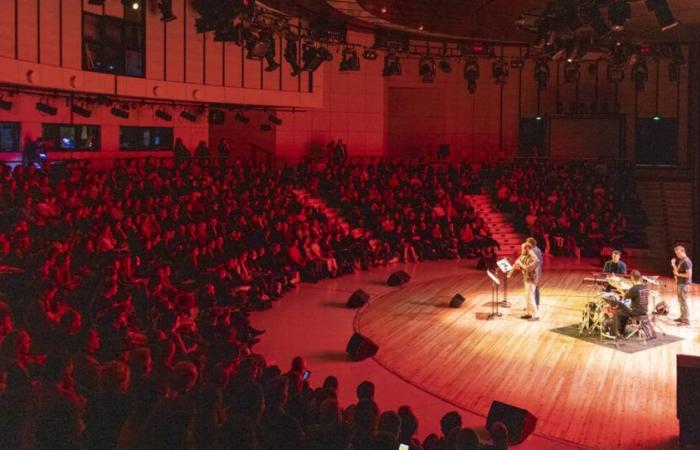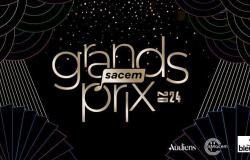
Combining financial aid and professional support, the Ile-de-France support fund for artists under 30 selects around forty creators to support at each of its sessions.
Getting closer to young creators so that, in return, they get closer to the region: this could sum up the DNA of FoRTE (Regional Fund for Emerging Talent). The system, which proposes to help, to the tune of one million euros annually, around forty winners from the visual arts, cinema and audiovisual, music and performing arts, is also intended as flexible as possible in its eligibility criteria. Some are immutable: candidates must be aged 18 to 30, create and reside in Ile-de-France, and be supported by a professional structure. Others are less so. In theory, you must have a diploma or have “followed qualifying training” in one of the disciplines, “but, in practice, you can be eligible by completing simple Afdas training [Assurance formation des activités du spectacle], because what counts is the project presented”specifies Benoit Solès, Ile-de-France regional councilor and member of the jury presidency. This project is not necessarily intended to be the first: the system targets “emerging” artists, but many of the winners already have one or two achievements to their credit.
Two types of support
Over a period of ten months, FoRTE aims to provide two types of support. The first in the form of financial aid, which can be received via an individual scholarship or through a grant received from the support structure. The grant is capped at 25,000 euros (equivalent to 2,500 euros per month) and generally received in two installments: at the launch of the project, then at the end of creation. The grant, for its part, can reach 50,000 euros: “A budget that includes the artist’s remuneration”specifies François Demas, cultural advisor for the region. The choice of the type of assistance is made on a case-by-case basis, to match the needs of each file as closely as possible.
The second support is support through advice, the provision of equipment and places and putting artists in touch. An actor himself, Benoit Solès knows the difficulties of the industry well: “The lack of rehearsal rooms, the absence of distribution assistance, the difficulty of getting a first helping hand… It is to compensate for these deficiencies that the FoRTE system was created”. Throughout their creation (and even after), the winners can turn to different managers, such as Alpar Ok, young creation project manager in the region. And this, both to obtain practical and technical details (on conventions, for example) and to ask questions relating to their project.
The Ile-de-France region displays the desire to have “protected and significantly increased its cultural budget, estimated at 103 million euros in 2024”describes François Demas, cultural advisor to the region. Concentrating 50% of French artists, Ile-de-France is particularly rich in cultural offerings, but this remains unevenly distributed across the Ile-de-France region. The region therefore hopes that FoRTE will gain visibility, to “include more and more artists from social categories without immediate access to culture”he explains. For the moment, the number of candidates is quite stable: around 300 each year since the system was implemented in 2018.
And two selection phases
The selection of the winners takes place in two phases: a skimming by the regional services, which ensure that the files correspond to the eligibility criteria, then the examination of the files by the four juries – one per discipline. Each of them is made up of an advisor from the region who is a member of the jury presidency and four other specialized profiles, renewed with each edition. In 2023, we found the actress Elsa Zylberstein on the cinema jury, while the actor Nicolas Bouchaud sat alongside the star dancer Alice Renavand in the performing arts. The painter Philippe Cognée, who spoke about the visual arts, greatly appreciated the experience, even if he regrets that the selection is only on file. “When we are faced with the candidates, we feel something extra, which escapes the written workhe justifies. But I found the files demanding and varied, even if many of them proposed something quite openly political, a popular trend.
Sometimes, the region also calls on former winners: last year, Valentin Tournet and Gabrielle Hartmann were both asked to be part of the music jury. “Most of the candidates planned to release a record, but the styles were very eclectic, and this diversity had to be reflected in our choices”relates Valentin Tournet. His colleague agrees: “It’s the originality that appeals, above all. Atypical projects have sometimes won the prize to the detriment of other more successful ones.” Because there are boxes and frames, but also favorites.





